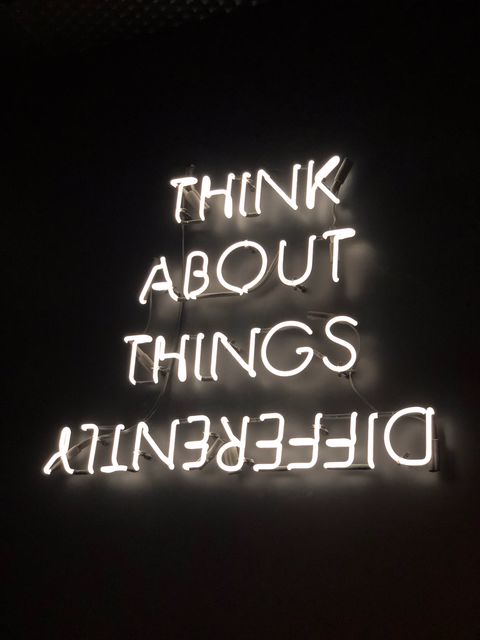
Many years ago, I wrote a sermon entitled “The Name the World Forgot.” It was based on Matthew 10: 2-4, which is a list of Jesus’ twelve disciples. In the sermon, I said I had a bone to pick with the gospel writer. It is a simple list, one name following another until you get to last one. Judas Iscariot. You can probably recite what comes next. The one who betrayed him.
And so, Judas became the name that the world forgot. Today, you will find lots of people named Peter, Andrew, James, and John. There are plenty of people called Thomas, Matthew, and Philip. There are even some with the name Bartholomew and Thaddeus. But no one names their child Judas.
All because of the label that follows his name: the one who betrayed him. Surely, Jesus chose Judas to be a disciple because he saw promise and possibility in him. Judas chose to follow Jesus because his words and actions stirred hope in Judas’ soul. In the 1-3 years they spent together, there were countless interactions between Jesus and Judas. But he becomes known only as the one who betrayed him.
If you look over the list again, you notice it doesn’t say Peter, the one who denied him. It doesn’t say Thomas, the one who doubted him. It doesn’t say James and John, the ones who asked Jesus to call down fire from heaven on a town that wouldn’t receive them. What’s in a label? A lot.
I’ve had moments in my life that I am not proud of. Moments for which I felt guilt and shame. But when I’m introduced to someone, they don’t say, “This is Gary, the one who was deceitful and was dishonest with his friend.”
Now, don’t get me wrong. There are settings in which labels are a good thing.

Imagine walking up and down the aisle in the grocery store with nothing but stacks and stacks of cans…with no labels. When I was I chaplain at Methodist Children’s Home in Waco, Texas, I was leading a retreat where we were talking about the power of labels. I brought out a couple of bags with canned goods, and none of the cans had labels. Every person selected three cans, and I asked them to imagine that whatever was in the cans they selected was going to be their lunch.
As we opened the cans and saw the combinations of food, there was a lot of laughter, along with some groans from the guy who had the applesauce and pickled beets. But I am thinking there wouldn’t have been much laughter if this really was their lunch.
The labels on cans of food and the labels we put on others are very different. The work “delimit” means to determine the boundaries of something. The labels that we put on others delimit.
Do an experiment with me. Think of a label that you have heard about a person or a group. It could be in any realm: religious, political, personal. Now, sit with that label for five minutes. I encourage you to set you device down and really do this. Set a timer for five minutes. Just notice what your mind gives you as you let the label or the person be there. If you notice that you have started to think of something else, bring you mind back to the label or person and notice what comes up.
Conservative. Liberal. Republican. Democrat. Progressive. Christian. Muslim. Angry. Happy. Those may have been some of the labels you focused on.
Even as I write those words, I can feel the delimiting nature of label. Maybe the same thing happened during your five minutes. Labels tend to deal with opposites. When I wrote the word “conservative,” almost immediately my mind, and maybe yours, thought of “liberal.” And it probably didn’t stop there. There may have been words forming in your mind that defined the label. Most likely, your mind went from words to images of people who carry that label. Along with the thoughts, you may have had some emotions as you held this label in your mind.
What happens with labels can also happen with people. Again, notice, really notice, what happens when you hear these names in your mind. Donald Trump. Barack Obama. Abraham Lincoln. The thoughts and images came quickly. There may have been emotional, even visceral, responses. Because I didn’t tell you to do it for five minutes, you may have stopped thinking about them after a few seconds and moved on to something else. “This is who this person is” your mind says. Judas, the one who betrayed him.

There has been a lot of talk about the absence of civil discourse in our society.
The talk goes on and on, but still the discourse remains uncivil and unproductive. I wonder if labels have something to do with this struggle. Can we be more aware of just how deeply the labels we assign to others shape the ways we relate to them?
Will Campbell was a Baptist minister from Mississippi who was active during the Civil Rights Movement of the 50s and 60s. He was a close friend of Rev. Martin Luther King and the only white person present at the founding of the Southern Christian Leadership Conference, the group that led the charge for civil rights in America. When nine black children walked through an angry crowd to integrate the schools in Little Rock, Arkansas, Campbell walked with them.
Will Campbell also spent a lot of time befriending members of the Ku Klux Klan. Especially after the passage of the Civil Rights Act in 1964, he spent so much time drinking whiskey with them that, in some circles he became known as the chaplain the Klan. And a lot of his friends and colleagues who worked many years with him for social equality were livid. Perhaps Will was not living up to the label he had been assigned.

In his book, Brother to a Dragonfly, Will says, “I had become a doctrinaire social activist without consciously choosing to be. And I would continue to be some kind of social activist. But there was a decided difference. Because from that point on I came to understand the nature of the tragedy. And one who understands the nature of the tragedy can never take sides.”
When Campbell died in 2013, Rev. Gordon C. Stewart wrote these words of tribute: “He confused his critics – first the Right and then the Left – by insisting that his soul did not belong to any team – racial, political, religious, cultural. It belonged to the Kingdom of God. There was only one team, and that was the family of ALL God’s children everywhere.” (https://sojo.net/articles/remembering-will-campbell)
The labels are there. We can’t help but use them. But we can realize what they can do to us and choose to move beyond them. We move beyond them further and further until we arrive at the “label” that embraces us all: All God’s children everywhere.

A very thought provoking read, especially during this current environment where cancel culture seems to rule the court of public opinion.
Thanks for reading and sharing Jessica.
We give WAY too much credence, too much truth to labels, and they’ve become a way to erroneously assign shorthand meaning to essence, purpose or anything else of substance that defies mere appearance or convenience. Labels, especially ones used to describe human beings, kill; they kill the opportunity to learn how the other has chosen to define her- or himself, and perhaps how that one understands how God has made her/him. I talk about this sad phenomenon of labeling in terms of “isness.” We can call someone a “jerk,” but that falls absurdly short of what Jesus told us we are: salt and light. Now THOSE are some credible labels because of the authority of the one who is calling them. And perhaps that is the crux of the matter: By what authority do you call me that?
Anyway, that’s my story and I’m stickin’ to it! Thanks, Gary! Peace, brother…
Well said, my friend. I love the image of how labels can kill opportunity. And yes, salt and light…I can live with those labels.
Thanks Gary. People are so much more than the one label we attach to them.
Indeed, all of us are.
Loved this Gary, it’s so true, especially for those WE label. Intellectually disabled, learning disabled, emotionally disturbed, etc. ALL of these people may have those traits, but, we need to look further, that doesn’t make the whole person.
Well said Gale. Thanks for ready and sharing
Thinking about all the labels of one’s life…. (for me) female, daughter, niece, granddaughter, sister, friend, wife of, mother of, and now widow. None of these labels tell you about my traits or passions or really much of anything and I have allowed them to define me at some points. I am working to be the child of God first and then to let my whole person shine through. Please note working … not there yet but expecting more labels to occur to my life.
Cheryl, I think you are right. The labels are there. We assign them to ourselves at times. Or someone assigns them to us. The key, it seems, is recognizing the labels for what they are…and who we are beyond the labels.
Thanks Gary for reminding me to be thoughtful , fair and generous with others. Great blog ~ carry on 🙏
Thanks Ruth. With the pervasiveness of labels, it is a reminder we all need.
Great article. Labels are limits. It seems to be a natural way to relate and identify. Something as simple as being a woman creates immediate characteristics in the mind. Growing up in an era where many women didn’t work, I heard many derogatory comments about working mothers. Just recently, I heard a news story about a women’s organization berating stay at home mothers. The pendulum has swung the other way.
And what about the labels we hang on ourselves. I am……. The most powerful words on earth (in my opinion). But we have become so hyper critical of ourselves, under the pressure to look youthful, stay thin, build an empire, find the perfect partner. If we don’t check all of the boxes, what labels are we limiting ourselves with.
Labels are a form of judgment. They are preconceived notions that only limit our hearts and minds. “So a man thinketh”. What I think we don’t realize is that these labels ultimately create our lives. Do we want to live free, or in the prisons of our labels of ourselves and others?
Great article. Labels are limits. It seems to be a natural way to relate and identify. Something as simple as being a woman creates immediate characteristics in the mind. Growing up in an era where many women didn’t work, I heard many derogatory comments about working mothers. Just recently, I heard a news story about a women’s organization berating stay at home mothers. The pendulum has swung the other way.
And what about the labels we hang on ourselves. I am……. The most powerful words on earth (in my opinion). But we have become so hyper critical of ourselves, under the pressure to look youthful, stay thin, build an empire, find the perfect partner. If we don’t check all of the boxes, what labels are we limiting ourselves with.
Labels are a form of judgment. They are preconceived notions that only limit our hearts and minds. “So a man thinketh”. What I think we don’t realize is that these labels ultimately create our lives. Do we want to live free, or in the prisons of our labels of ourselves and others?
Two responses.
Even words that we think are descriptions are really labels in their delimiting effect. The word “woman” is a good example of that.
The labels we hang on ourselves. One of the exercises I do with clients is have them finish the sentence “I am…” I have them finish it with a word about themselves they don’t like, and one they do like. Then we look at the statement. I am rude. We think of times and ways that they aren’t rude but actually quite polite and kind. I am honest. We think of times and ways that they weren’t honest. Then we end the exercise by having them say, mindfully, over and over, like a mantra: I am. Nothing else.